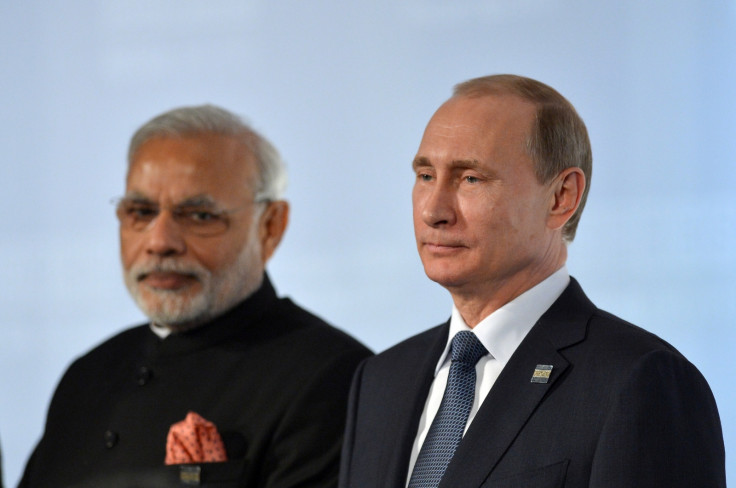Vladimir Putin assures Brics nations are committed to ensuring 'international information security'
Speaking ahead of the Brics Summit the Russian leader said member countries 'reject the policy of coercive pressure'.

Keen to "harmonise positions on key issues on the international agenda", Vladimir Putin said that the upcoming eighth Brics Summit in the western Indian state of Goa, will be a platform for member countries to renew their "commitment to uphold international laws".
The leaders of five emerging economies Brazil, India, Russia, China and South Africa are expected to meet for the two-day summit from 15 to 16 October to discuss a range of issues ranging from economy, international co-operation to defence.
"For our five countries' leaders this meeting will be a good opportunity to harmonise our positions on key issues on the international agenda. We are determined to cooperate in the fight against terrorism, drug trafficking and corruption," Putin told IANS, adding that the bloc would "also contribute to settling conflicts and ensuring international information security".
Stressing the need to address the global terror crisis and cross-border instability, the Russian leader said, "Our countries reject the policy of coercive pressure and infringement upon the sovereignty of other states. We take similar stances on urgent international issues, including the Syrian crisis and the Middle East settlement."
Many have challenged the continuing existence of Brics, considering a range of issues affecting each of the member countries. Economies of Russia and Brazil having shrunk since the start of 2016, South Africa's economic development has stagnated and China's economic growth has declined significantly. Brazil and South Africa are experiencing political crises and India is currently engaged in border disputes with Pakistan.
Nonetheless, Putin believes there is still a need for the international collective. "All of us remain concerned over continued lack of stability in the global economy. Together with our partners we will reflect on what can be done to further unite our efforts in order to address these challenges," he said.
"This is why the summits' final declarations, and the Goa Summit will be no exception to this rule, reaffirm our shared commitment to the fundamental principles of inter-state communication, particularly, to the observance of international law with the central coordinating role of the UN. With some Western countries attempting to promote their unilateral approaches, this position becomes even more relevant," he added.
Brazil's President Michel Temer, Chinese President Xi Jinping, South Africa's President Jacob Zuma along with Putin will join host Indian Prime Minister Narendra Modi on Saturday (15 October) for the summit.
© Copyright IBTimes 2025. All rights reserved.






















